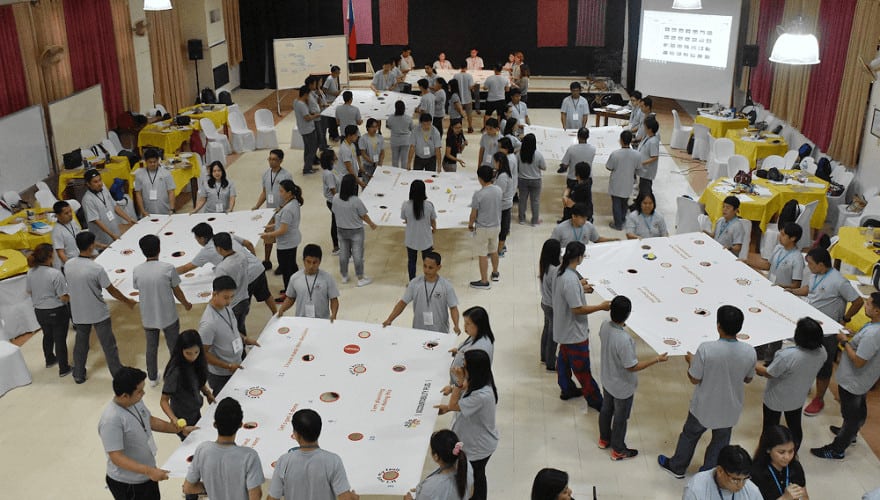Utang na loob can build deep loyalty—or trap you in guilt, favoritism, and decisions you don’t believe in. In this article, Jef Menguin explains the healthy version: gratitude that turns into generosity, not a lifelong debt you keep paying. Practice the shift and share it at work so reciprocity stays human, fair, and freeing.
Utang Na Loob is a valued cultural trait of Filipinos. This Tagalog phrase is a widely accepted pattern of behaviors among various ethnic groups. It is generally good, very potent, and taught to us since we are young.
With a healthy mindset, utang na loob becomes an act of generosity and gratitude. But with a fixed mindset, utang na loob is a debt we will forever pay.
I thought of writing about utang na loob because although it is an excellent Filipino trait, it is often misunderstood and abused.
Meaning of Utang Na Loob
Utang na loob has no exact translation in English; the meaning is contextual and cultural.
Utang na loob is a Filipino cultural trait that may mean debt of gratitude and reciprocity. We keep to heart the good deeds we receive from someone, especially when we need help. It is as if we say we are indebted to that person for life.
Therefore, we will deem it an utang na loob even if you paid for the products and services. So, for example, the whole family will say that they have utang na loob to the doctor who saved their father from death. Yes, even if the doctor got paid.
Often, the giver does not impose utang na loob on someone who received help. In the Philippines, we value bayanihan, malasakit, and pakikiramay. So, helping people is natural to us.
It is the person who received help who acknowledges utang na loob. It is therefore not a contractual obligation because a contract is a meeting of two minds. Even if the giver expects a return of the favor someday, there is no obligation nor an indication of how much will be returned.
It is often the case that it is not the giver, but the community that expects you to return the favor. When words spread that you got help from someone and you refused to assist that person when he needs it most, no matter how big or small, the community will consider you a walang utang na loob (someone with no sense of gratitude).
It is not okay to be known that you are a person with no utang na loob. But you don’t have to worry. Filipino easily forgives.
This is the general idea behind utang na loob as a Filipino cultural trait.
However, its application isn’t the same for everyone. For this reason, it can be wrongly used and abused. Let me explain.
Read: Filipino Values. Find out how Filipinos are influenced by their beliefs.

Children must take care of their parents out of utang na loob.
To some Filipino families, parents deem that children must acknowledge utang na loob for being brought into this world.
A few consider sending children to school an insurance policy for old age. In some families, the father stops working when the eldest child graduates from college. The burden of sending the other children to school is passed on to the eldest child.
Every child must take care of their parents in their old age. Often, the unmarried ones have to take responsibility. To escape from this responsibility, one has to get married.
Some Filipino parents tell their children of this obligation.
However, there are a growing number of Filipinos who think that this is not a good practice. Children do not have to take care of their parents to return a favor received. The relationship between parents and children must be based on love for each other, not an obligation to return a favor received.
Returning a Favor
Even if not imposed, people consider it their obligation to return any help. The return of favor is sometimes even more significant than what was received.
Mario’s son was awarded a college scholarship because of the mayor’s recommendation. So the family will always say that the mayor helped them. Even two generations after that, the grandchildren of Mario will still vote for the mayor or everyone with the same family name because of utang na loob.
Discover the Filipino values that shape how we work, lead, and live—beyond slogans and speeches. Get the Values Starter Kit. Read the series, choose one value to practice this week, and watch how small shifts create real change.
Paying Forward
I am a product of my teachers. I am thankful for the knowledge I learned from them. I may no longer remember their names, but I won’t forget the good deeds they’ve done.
For this reason, I also teach. In addition, I do free seminars for students and teachers, for I am paying forward.
Two values that bring about utang na loob are generosity and gratitude. So essentially, the cultural trait is excellent.
But some abuse it for their benefit. Let’s explore this briefly.

The Abused of Utang na Loob
Utang na loob is so powerful it is used to compel people to compromise principles. It is used to promote corrupt practices in government and in businesses.
Patronage Politics
Utang na loob has been used by corrupt politicians so they can perpetuate in power. They want people to believe that we owe them a debt of gratitude for roads, school buildings, and other projects. Never mind that these projects are overpriced and were paid for by the people.
Patronage politics is an abuse of utang na loob. Those who support a politician get juicy government positions even though they are not qualified. Because of this, they are forever indebted to the politician they support, no matter how corrupt.
There are a growing number of Filipinos, including politicians, who believe this practice is wrong. Local elected officials are public servants. They applied for the job and get paid for doing their jobs.
Election Bribery
Among the poor, there is no such thing as election bribery. They expect politicians to distribute money the night before the elections. These are bribes, but to them, this is an aid.
During the elections of 2022, I saw how politicians delayed the distribution of government aid for months. Then, days before the election, people line up to get their shares. Monies were distributed during rallies and community assemblies. The money is a small portion of what was allocated to them by the national government.
Of course, politicians made it appear that it was because of their generous hearts that people were getting aid. Nobody comes forward to say that they received a bribe.
The practice is prohibited by law. We teach in a school that this is wrong. But when you include the words malasakit and tulong to the campaign, the bribe becomes help – and the help one gets turned into utang na loob.
Business Favors
Business people often support politicians’ campaigns because they expect to get favors.
During the term of Rodrigo Duterte, we have seen how his allied politicians became billionaires during the time of the pandemic. They can enrich themselves in power because the president has a distorted sense of utang na loob.
Utang Na Loob in Modern Times
Utang na loob is a positive cultural trait. The abuse isn’t part of it. The abuse is corruption (kabulukan), and we know it must be stopped.
And everything that is good must be continued.
Kagandahang Loob
Filipinos are naturally generous. They do not stop helping others who are in need. They don’t expect anything in return.
We believe that whatever blessing with receive from God, we must share.
Our first utang na loob is to God. We give because we are grateful. Our town fiestas, for example, are thanksgiving celebrations.
Pasasalamat
In essence, a debt of gratitude doesn’t get paid. It is not a this for that. That relationship exists as long as the receiver of the gift remains thankful.
The sincere giver, on the other hand, doesn’t really expect to get anything in return.
Spirit of Bayanihan
The Angat Buhay of Robredo became successful because of generosity and gratitude. It is also because we believe in bayanihan.
The community pantries during the pandemic are examples of how people come together to help each other. Those who initiated the community pantries were not politicians. However, they did expect anything in return. Most of those who gave remain nameless.
The community pantries were successful because of thousands of volunteers. They are everyday heroes, and we owe our debt of gratitude to them.
Read: The Filipino Values of Bayanihan
Utang Na Loob Quotes
These debts of gratitude quotes express the different shades of utang na loob.
Ang hindi marunong lumingon sa pinangalingan ay hindi makakarating sa paroroonan.
Jose Rizal
Those who cannot look back can’t reach their destinations. This advice is both timeless and timely. We now see enormous efforts to make people forget the EDSA People Power Revolution which brought back democracy to our country. We even elected someone whose aim is for us to forget where we came from, and who every day convinced us to move forward for the sake of false unity. But we must heed Rizal’s advice. We owe our debt of gratitude to those who fought for our freedom.
All the quotes that follow were from people who have not heard the phrase utang na loob. The trait is universal.
True greatness means that, even if you forget what you’ve done for others, you never forget what others have done for you. It means always doing your utmost to repay debts of gratitude. Such people radiate integrity, depth of character, bigheartedness and charm.
Josel Toda
To the generous mind the heaviest debt is that of gratitude, when it is not in our power to repay it.
Benjamin Franklin
The debt of gratitude we owe our mother and father goes forward, not backward. What we owe our parents is the bill presented to us by our children.
Nancy Friday
If we meet someone who owes us a debt of gratitude, we remember the fact at once. How often we can meet someone to whom we owe a debt of gratitude without thinking about it at all!
Johann Wolfgang von Goethe
The baby boomers owe a big debt of gratitude to the parents and grandparents – who we haven’t given enough credit to anyway – for giving us another generation.
Steven Spielberg
Our Nation owes a lasting debt of gratitude to all those selfless members of our Armed Forces who have risked their own freedom and safety to defend the lives and liberty of others.
William J. Clinton
Questions
Recommended Articles
If you like reading this piece about utang na loob, you will also enjoy the following articles.
- A Generous Giver is A Grateful Person. Those who value utang na loob are generous givers too. Those who don’t frequently think only of what they can get.
- Pay Forward. Another way of recognizing utang na loob is paying forward. It is a way of honoring the people who helped us when we were in need.
- 50 Ways to Self-Improvement. Try and apply one of these practical tips each week – and you’ll have year-long self-development lessons to guide you.
- Pay Attention to Your Intention. We must live each day mindful of the most significant things in life.
- Pakikipagkapwa-tao. Build stronger human relationships. As mentioned above, utang na loob isn’t a contract. It recognizes the goodness the other person has done to you. Pakikipagkapwa-tao is one reason we ought to live thankful for each other’s help.
- 100 Ways of Saying Thank You. Kristin shared the beauty of saying thanks to people. She shared 100 ways saying thank you in different languages.
I hope that utang na loob, an admirable Filipino trait, will continue in the spirit of generosity, gratitude, and bayanihan.
If you want Filipino values to show up as real behavior at work…
Let’s turn it into a culture shift experience.
→ Shift Experiences




